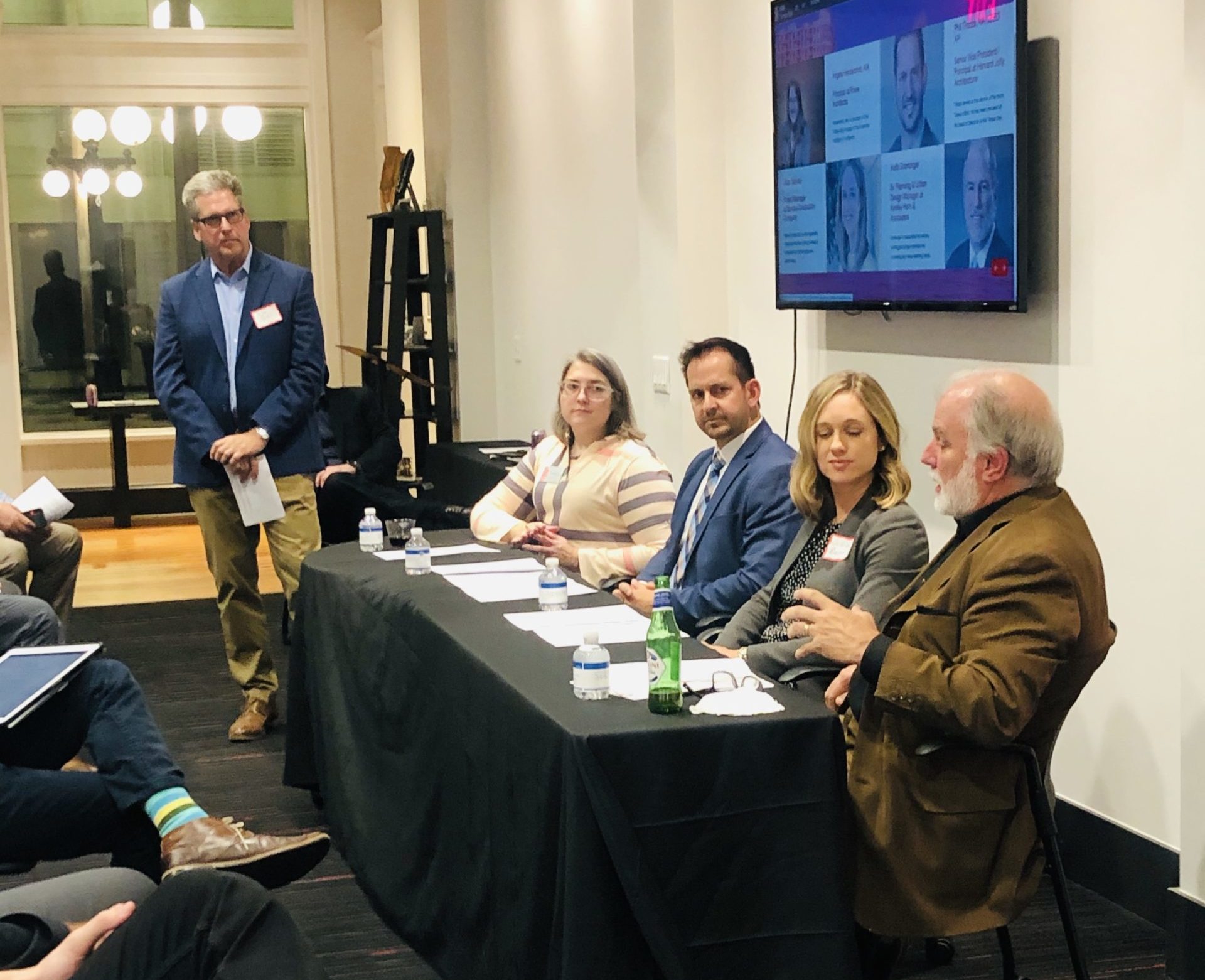
A panel discussion can be informative and engaging, or it can be deadly boring. Of course, panelists are critical to the success of your panel discussion because they know the subject matter and are willing to give their opinions freely.
But having a good moderator is also critical. A good moderator helps a panel even succeed in a number of ways. The moderator:
- Keeps the conversation on point,
- Gets everyone on the panel involved, and
- Offers context to comments.
The moderator should also serve as an advocate for the audience, making sure the discussion is helpful to the people who are watching.
Our role in moderating panel discussions for Urban Land Institute Tampa Bay, AIA Tampa Bay (pre-pandemic discussion for the "Voices of Architecture" study shown in photo), and PRSA Tampa Bay, among other organizations, has helped the conversation be interesting and lively, and brought benefits to the attendees.
Here are five areas to consider as you think about who could serve as your next moderator for a panel discussion:
Understand the subject matter
Certainly, scripted questions are a good idea. Scripted questions give panelists a head’s up on what’s coming their way so they can prepare before the discussion. But a moderator with subject matter knowledge has the ability to also follow up to an answer when needed.
For example, let’s say that a commercial real estate expert says there are warning signs this year in the industrial/warehouse sector. A moderator who knows the subject would realize that this statement doesn’t fit the ongoing narrative about that sector, and could ask questions on the fly that would flesh out the panelist’s point, making the discussion more valuable to the audience.
And of course, there’s nothing more awkward than a moderator mangling an industry term or asking an overly simplistic question.
Be aware of what the audience already knows
The panel discussion should be understandable to everyone in the audience, but it shouldn’t be so basic that the audience doesn’t learn anything from it.
Again, subject matter knowledge is critical to know when the conversation may be getting too much in the weeds, or conversely, if it’s going over people’s heads.
Have a journalist’s mindset
The moderator should take an active role in shaping the questions for the discussion, working from subject matter knowledge, the background of each panelist, and what will resonate with the audience.
Why should the audience be engaged if the moderator is “mailing it in?” A good moderator has the ability to ask good questions and is genuinely curious about the topic at hand.
Bring the panel together before the event
The moderator should hold a session to prepare for the panel, either with the whole group or individually with each panelist. This session gives panelists the opportunity to make sure the questions are on track. And it gives the sponsor or organizer the ability to adjust the topic if it becomes clear that it’s not quite the right fit for the attendees.
Also, giving panelists the opportunity to weigh in on the questions – and to offer ideas for their own – will get them more engaged, leading to a better discussion.
Start the process early
A moderator for your panel should be selected before the panelists. The right moderator can help with choosing quality panelists that reflect diversity, thoughtfulness and public speaking ability. The moderator can also help shape the topic, the questions, and even the outreach materials designed to generate a larger audience.
Planning is important for any event to be successful. A quality moderator is like an insurance policy – someone who can navigate unpredictability, whether it’s a technology issue, or a panel member going off-topic.
Make the investment to train people on your team who have the potential to serve as moderators or as panelists for industry events. It can pay off with increased visibility for your company.
B2’s co-founders Kyle Parks and Missy Hurley, APR frequently serve as moderators and panelists on a range of topics. Contact us to see if we can help your next panel discussion be successful.
